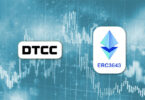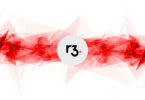Today R3 announced the launch of the Corda Network, the interoperability layer between blockchains running on Corda. A new non-profit foundation has been created in the Netherlands to govern the network independently of R3.
Corda differs from other distributed ledgers in a number of ways. First, it’s not a blockchain which means that nodes only store data for transactions in which they’re involved, which is great for privacy. Another is that to interoperate with other blockchains on the Corda Network requires a relatively simple configuration. This hooks into the common layer of identity and consensus. Without the high level of privacy, the sharing of data could be more of a challenge.
For example, a company that operates a node that’s part of a supply chain blockchain might choose to share bill of lading and invoice data with a bank on a trade finance blockchain. That’s provided both blockchains are powered by Corda, and it doesn’t matter whether that’s the open source or Enterprise version. Likewise, any blockchain that requires payment could interact with a separate blockchain that facilitates tokenized money – a Corda stable coin.
Is this interoperability a big deal? Can’t blockchains just be integrated with APIs? The answer is they can, but that’s not optimal. One of the aims of blockchain is to share data and get away from the need for numerous APIs and the challenge of keeping silos in sync.
The Corda Network concept was first explained by R3’s CTO Richard Gendal Brown back in April last year.
Even though Hyperledger has Quilt, none of the enterprise blockchain organizations have yet to offer robust interoperability solutions that work between the major blockchain flavors such as Corda, Hyperledger Fabric and Ethereum. Others such as Accenture are exploring solutions.
Privacy?
Given a node only stores transactions in which it participates, sharing data with a node on another blockchain shouldn’t be an issue for privacy. In theory. The only question is whether a counterparty to the node’s transactions is bothered by the sharing. The company could share a paper-based version of the data anyhow. But it’s far easier to share digital data in bulk.
We failed to come up with a good example of where a company might care. But we have a sense that on occasion this could be an issue. This is a topic we may return to so please contact us if you have thoughts you’d like to share.
Governance
For the first three years R3 is the Corda Network operator. After that, the appointment of the operator is subject to a vote.
The governance of the Corda Network is intended to be independent of R3. There’s a board of eleven directors, made up by two from R3 and nine others where the selection criteria aim to create diversity. For example, a company can only have a single director and no more than three directors should represent corporate groups with more than 100,000 employees. But there’s no requirement that at least one startup should be represented. There can’t be more than three directors from any continent or industry.
The rules are a little more flexible in the first transition year. Once three blockchains are live on the network, these blockchains get to appoint three directors each. After that, the nine directors will be voted in for staggered durations so that three directors come up for renewal each year. While continuity is desirable, a three-year term seems like an eternity with the current pace of change.
Board meetings will be conducted in private and approved board minutes are published within two weeks.
The initial transition board has not yet been announced.






